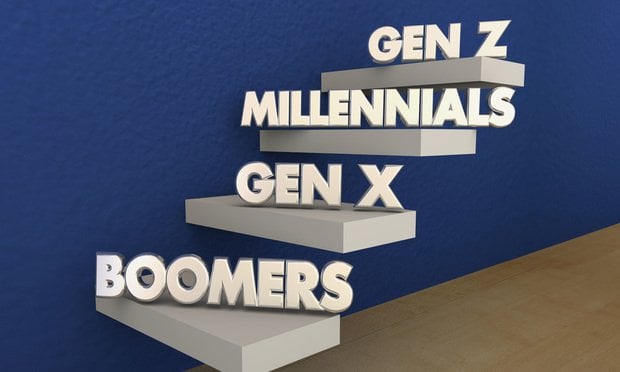Changes in the retirement system—from a later Social Securityretirement age to a switch from defined benefit plans to 401(k)plans and IRAs—were expected to result in relatively less wealthfrom DB plans and Social Security and much more from 401(k)s andIRAs. But according to a brief from the Center for Retirement Research atBoston College, that has not been the case.
|Instead, younger members of the boomer generation (ages 51–56),who might be expected to have accumulated more retirement wealth in401(k)s/IRAs than older boomers after more of their careers werespent working for employers who offered defined contribution plansinstead, are showing a "surprising drop" in IRA assets whencompared with earlier groups at the same ages.
|The brief points out that late boomers really got nailed in theGreat Recession, with many still out of work even during the laterrecovery. But even those who managed to continue to work are comingup with the short end of the stick, hit by the triple whammy oflower earnings, less 401(k) participation, and flat 401(k)balances."
|So not only are late boomers suffering from "predicted declinesin defined benefit plans and Social Security," says the report, butalso an unanticipated drop in 401(k)/IRA assets—somethingresearchers find alarming since that group of boomers would havespent most of their working lives accustomed to a DC, rather than aDB, plan.
|Examining working households, researchers found that after theGreat Recession, that triple whammy meant that their retirementassets don't come near approaching those of earlier cohorts.
|And in reviewing the retirement assets of younger groups—GenX,GenY and GenZ, and early millennials—researchers found that some ofthem, too, could be in financial jeopardy. Late boomers' low401(k)/IRA wealth, they found, can be explained by particularlyhigh levels of unemployment during the Great Recession and morereliance on lower-paid jobs when they managed to find work again.But the trend does not appear to be ending with that single agegroup.
|According to the report, the same information on those fourlater age groups "suggest these later cohorts may not see anyimprovement. Their balances tend to fluctuate around those for theLate Boomers, which would not be a good result."
|As to why this particular age group was so hard hit, why theywere unable to recover, and why the effect should carry over intothe fate of future groups, the report concludes that thesequestions are still waiting to be resolved.
|READ MORE:
Complete your profile to continue reading and get FREE access to BenefitsPRO, part of your ALM digital membership.
Your access to unlimited BenefitsPRO content isn’t changing.
Once you are an ALM digital member, you’ll receive:
- Critical BenefitsPRO information including cutting edge post-reform success strategies, access to educational webcasts and videos, resources from industry leaders, and informative Newsletters.
- Exclusive discounts on ALM, BenefitsPRO magazine and BenefitsPRO.com events
- Access to other award-winning ALM websites including ThinkAdvisor.com and Law.com
Already have an account? Sign In
© 2024 ALM Global, LLC, All Rights Reserved. Request academic re-use from www.copyright.com. All other uses, submit a request to [email protected]. For more information visit Asset & Logo Licensing.









